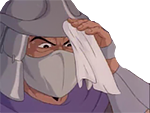- Joined
- Jan 5, 2009
- Messages
- 2,394

I think this comes down to player skill to great degree. Are there major reactive elements in games like CS or Dota? Absolutely, but how does one react to things successfully? By planning and predicting enemy actions.
Playing purely reactively is the realm of the bad to mediocre player. The good player is always planning.
That most people can't manage to play and think at the same time is a whole other matter of course and most people play both the mentioned games as an almost purely reactive experience (oh no! They ganked my lane! How could one ever have predicted this?!).
I get what you're saying and agree to a point, but I still believe there is a significant difference here.
Yeah, virtually every game will require some level of tactics and strategy. In fighting games, for example, when choosing a specific character, you need to be aware of his moves, the range of the punchs an kicks, the priority of his attacks (which attacks cancel certain other attacks), and so on. A good Street Fighter player will not simply push the buttons faster, and will not only respond to the enemy's attacks, but he will intentionally try to direct the fight to a more advantageous situation for him, in addition to analyzing the way his enemy will act based on his choice of character and moves. This same principle applies to shooting games, in relation to positioning, map knowledge and awareness, weapons choice and many other things. Rapid reflexes only take you up to a point.
Even so, the fundamental difference of all these action games is that their strategy and tactics are also reactive based. You may have a bigger specific plan in your mind, but being able to change and adapt on the fly is what characterizes a good player. You actually have dozens of plans and assumptions about the flow of the game and you are adapting your strategy depending on the direction the events are taking. Taking DOTA as an example, your game plan will change a lot depending on the items your opponent chooses, the way he plays and who will be in the same lane as you. And all of this information may change from occurring.
And this holds true for both multiplayer and singleplayer games in most cases. In fact, it's the multiplayer aspect that ends up blurring the lines to some extent - and perhaps it deserves a greater reflection, but it's not the point that we are discussing here.
Turn-based games, specifically single-player ones, are quite similar to puzzles. Obviously they are puzzles with bigger "borders" and pieces that aren't so defined, but usually, the combat is a scenario where there are specific solutions. A good fight isn't usually one where you play and adapts your decisions at every turn, but one in which you have a bigger plan and execute it with precision (sometimes praying that the RGN's gods will not fuck you). The greatest satisfaction in a turn-based game is to put together a strategy for the whole fight and see it to perfection. And, like in every puzzle, once you find "the solution" to it, you have an answer that you can use every time in the future. You can then try to find other answers, since sometimes the games is open enough for this, but a strategy that worked once will work 95% of the time, in the same situation.
So the kind of satisfaction you get out of the game, and especially the kind of thinking and strategy you use in a turn-based game is by nature quite different from the kind you use in a real-time game. Most games require thought and strategy, but not all require the same kind.
My point is that one isn't inherently more strategic or tactical than the other (although single player action games seldom have much strategy or tactics involved).
Furthermore, reaction based gameplay is hardly the sole purview of RT games, any multiplayer game is reactive. Chess is highly reactive even though you obviously must have various plans to deal with whatever the opponent chooses to do if you play a remotely competitive opponent. I don't agree that seeing a strategy bear out to its perfection is the most satisfying part of chess either, it's the adaptation of the strategy to the specific realities of a particular game that is interesting. Finding a new path out of a situation where your previous strategy failed is very satisfying.
Each to their own suppose.
Edit: This is also why I kind of got bored with both the pillar games gameplay. It is a puzzle that you essentially solve by level 6-7 and which solutions become trivial to execute by level 10-12 (for the *vast* majority of cases). I realize that there are multiple solutions to the combat "puzzle" but when I find one and never need to change it I lose interest. This is why I feel that immunities and hard counters is an absolute must in these kind of games, if the AI can't adapt its strategy, at least force me to do it.
Last edited:






































